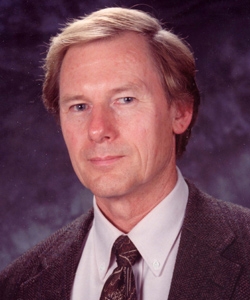Robert Powers passed though Humboldt State's Forestry program in an era when sustainable management and carbon sequestration were faint concepts. Today, the 1966 graduate is a renowned Forest Service scientist who, even in retirement, stays active in cutting-edge research.
Forests, he says, offer obvious environmental positives, from habitat to watersheds and, not inconsiderable, beauty. But he says the forests' most basic contribution is not apparent, but is basic to the well-being of the environment - locking up carbon.
"The fundamental thing that forests do is capture carbon from the atmosphere in creating vegetation," Powers says. The central question now, he says, is how modern management is affecting the land's ability to do this.
Forest soils are earth's largest terrestrial sink for atmospheric carbon. Soil, Powers says, is like an organism, with juvenile and mature stages, but with one major difference. "It takes millennia for the soil to develop," Powers says. "But poor management can degrade it in the blink of an eye."
In seeking to understand soil's survivability, Powers conceived the North American Long-Term Soil Productivity Research Program. At more than 70 sites across North America, data is collected to improve our understanding of how soil changes affect plant growth and to develop means for measuring this. "Until now, it's largely been speculative and anecdotal," he says. Powers' research could yield key clues to crafting climate catastrophe countermeasures.
He credits his HSU experience with cultivating his curiosity. He initially considered U.C. Berkeley (where he eventually earned his Ph.D.), but decided on HSU for a more intimate undergraduate experience, and it paid off. "I enjoyed the hands-on experience with young, enthusiastic professors," he says. "You don't always get that at a larger university. They got students to look at the forest as more than a collection of trees."

